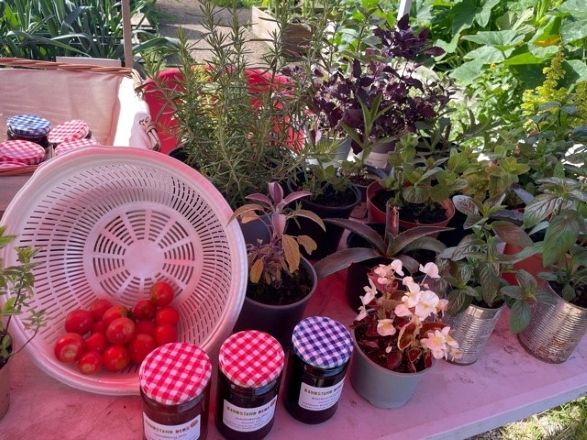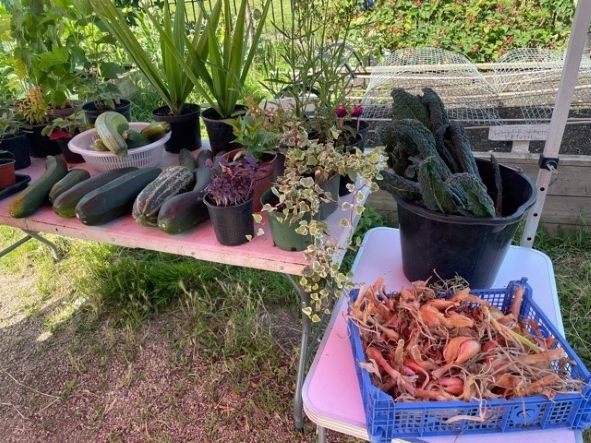Back to the land! It’s been a rallying cry at various points in history since the Industrial Revolution. When modern life oppresses, when the city gets too much, we look for a rural solution. Several houses are currently for sale on my London street, their owners hoping to find more space and serenity in the countryside. They’re gambling that the Working from Home revolution is permanent, that they won’t get summoned back to the office.
This generation of city leavers is the latest in a long line of refuseniks. In the 1870s, in Fors Clavigera—a series of letters addressed to British workmen—John Ruskin proposed a mass return to nature. “We will try to take some small piece of English ground, beautiful, peaceful and fruitful. We will have no steam-engines upon it, and no railroads; we will have no untended or unthought-of creatures on it; none wretched, but the sick; none idle, but the dead… we will have plenty of flowers and vegetables... we will have some music and poetry; the children will learn to dance to it and sing it.”
A hundred years later, Americans disenchanted by Watergate, by the war in Vietnam and the misery of crime-ridden cities, headed for the fields and woods. They built their own homes, learned animal husbandry, how to make butter and keep a stockpile. Some grouped together in communes and experimented with free love.

I was thinking of these pioneers as I milled the spelt I needed to make sourdough bread the other day. True story—but when I say “milled,” perhaps I should explain that this was at my local plastic-free, bulk foods shop. They had run out of spelt flour so directed me to an electric grinder which I could use to produce my own. All I had to do was pour in the spelt grains and press a button, but still, for a few minutes I felt like an actual miller. Just as Harry and Meghan may feel like actual farmers when they take Archie out to feed the hens. Even Marie Antoinette famously liked to milk a cow from time to time, to keep her hand in.
Lockdown has made nature enthusiasts of us all, not least because there has been almost nothing else to feel enthusiastic about over the last 18 months. But the urge to spend more time in nature was growing even before Covid struck. Rewilding initiatives have been gathering pace over the last ten years. Community gardens are springing up in cities across the country, with the largest concentration in London. Meanwhile urban gardening activists—who seize on any tiny plot of neglected land for illicit cultivation—are now so respectable that the organisation Guerrilla Gardening has teamed up with the department store Liberty to produce a lavender pillow. One design featured an elephant and castle, a nod to the provenance of the lavender inside it.
For several years I’ve volunteered at a community garden on Clapham Common. We grow vegetables and plants in a communal plot and sell them at the weekends for donations which are then invested back into the garden. This year, for the first time, we have grapes and peaches. People gasp at the size of our marrows. The leftover produce gets turned into jams and chutneys that are also made communally. Sometimes we sit down for lunch together at the trestle table—eating the produce we ourselves have planted and grown. Recently, sitting between a PhD student who’s working on cell regeneration and a retired expert in international aid, I remember thinking this was better than any dinner party. Here, on an admittedly very small scale, is the community experience that the hippies were rushing to create in the 1970s. We work together, and we talk about life, politics and food. Our plot is close to the bandstand—where a vigil for Sarah Everard became the focus of national attention earlier this year—and to an encampment of anti-vaxxers that has recently dispersed. Right outside our gate is the mobile Covid testing unit.

There’s no denying we’re in the middle of London; looking up from weeding a bed of kale or beetroot, I can see the Shard and Battersea Power Station, And yet it does feel bucolic here, on a sunny day. The common caters admirably for a diverse population. A wooded area 100 yards away is officially designated a Public Sex Environment after dark. In the other direction is a “mud club” where children use old pots and pans to serve up mud pies. Sometimes I wonder if we gardeners are not so different from the children. But our food is—nearly always—more palatable than a mud pie.
I was brought up on a farm and couldn’t wait to leave it. The bright lights drew me to London but now I miss the dark skies of the countryside. “Back to the land” isn’t an option for me at the moment, but I get a taste of it, on Saturday mornings, midway between Mud Club and the PSE.












